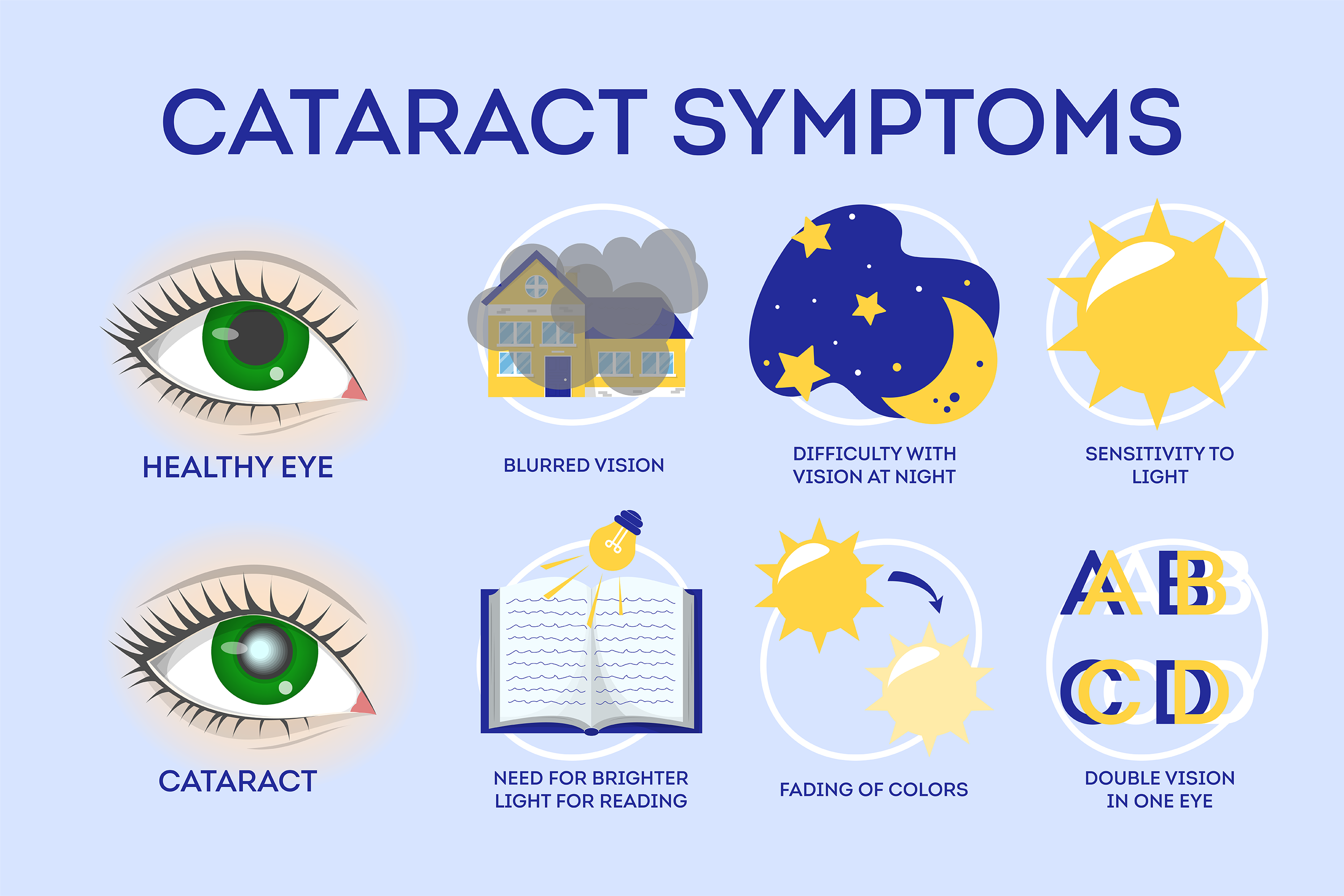
The Aftermath of Cataract Surgery: How to Make Your Recovery Easy and Safe
After you undergo a significant medical procedure, the treated area of your body is usually more susceptible to harm. During any recovery period, you should be extra mindful of your actions and environment so as not to potentially undo the operation, cause severe nerve damage or get an infection.
This is especially true for cataract surgery, as your treated eye(s) will be vulnerable to everything around them during the three to 10 weeks following your treatment. In this article, we provide a comprehensive guide to a smooth, safe and successful recovery.
Cataracts and Treatment Overview
A cataract is a cloudy area that occurs in the lens of your eye; it can happen in one or both eyes. If the condition worsens and begins to interfere with your everyday activities, you should have the cataract removed.
The operation is very simple: An eye care specialist will remove the clouded lens in the eye and replace it with a new, artificial lens. Because the surgery involves little to no pain and lasts only 15 minutes, you will not be anesthetized.
It is an outpatient procedure, so once the eye care specialist feels it is okay to leave, you can go home and start your recovery.
Post-Surgery Guidelines and Recovery
The ophthalmologist who treated you will provide specific instructions and recommendations — which may include some eye drops and an eye bandage, patch or clear shield to keep you from rubbing your eye and protect it from irritants. It’s crucial you follow their exact instructions for your recovery and how to use the objects they gave you.
In addition to your doctor's guidance, there are many other essential aspects to recovery. Below are a few of the most important considerations:
· Refrain from strenuous activity – You shouldn't exercise, lift heavy objects or engage in actions that cause head strain, such as coughing or sneezing, if you can.
· Avoid water – Do not shower without proper protection, and don’t swim at all.
· Eliminate potential irritants – For the first two weeks of recovery, you should not cook, clean or do any other activities that can lead to foreign substances getting into your eyes.
· Limit screen exposure – Intense and prolonged blue light exposure is damaging on its own, so remember your eye(s) will be especially vulnerable from your operation.
· Practice sun protection – You should wear sunglasses on bright, sunny days for at least a year after your surgery.
Planning for Essentials
As outlined above, you will have to adjust your routine for at least a couple of days following your procedure.
Here are a few things you should arrange before your treatment:
· Household chores – Cooking elaborate meals from scratch and cleaning with certain agents can harm your recovering eye(s). Ensure you only prepare easy meals and are cautious when you clean during recovery.
· Protection outside your home – You should be able to leave your home after a few days, but your eye(s) will still be vulnerable for weeks to follow. Before you go outside, evaluate the different risks of the places you are going and how you can mitigate them.
· Transportation – You cannot drive for at least three days after surgery; your doctor may tell you longer.
You can ask your friends and family how they can help with these matters, too.
Side Effects
You will experience temporary side effects — the treated eye(s) may feel itchy, scratchy, sticky and uncomfortable for a few days. You may tear up often and find it hard to see well in bright light. It takes one to three days for most people to start seeing better, but it can take up to 10 weeks for full recovery.
However, because more severe side effects can occur, you should be informed and ready to act. Prior to your surgery, you should read Complications of Cataract Surgery from WebMD and 10 Cataract Surgery Side Effects, and How to Cope from the American Academy of Ophthalmology to get a comprehensive overview of post-treatment complications. If you experience any of the symptoms mentioned, call your ophthalmologist immediately.
After all this information, cataract surgery may sound like a lot to handle, but you shouldn’t worry. While you may have to be careful for a couple of months after your treatment, it should be well worth it for your vision in the long run.
If you found this article helpful and informative, visit healthyvisionassociation.com for more content and learn more about our dedication to promoting healthy vision and overall health.
